F16s to Ukraine, Hiroshima, and the mockery of G7 leaders

The contrast couldn't be starker. G7 declared it would supply F16 fighter jets to Ukraine while its leaders posed for an official photograph in Osaka, Japan, with the Hiroshima Atomic Bomb Dome in the background.
History shows that wars often start when interests of major powers collide. European powers fought over the control of their colonies in World War I. In the early 1900s, most of the colonies in Asia and Africa were under the British and French imperial control. Other European powers were not happy and they wanted a share of the lucrative pie. As British and French expansionism continued, tensions rose with their opposing powers – Germany, Austria-Hungary, and the Ottoman Empire (Central Powers). Germany felt surrounded and threatened by the Triple Entente alliance between France, Britain, and Russia. The triggering event for World War I was, of course, the assassination of Austria's Archduke Franz Ferdinand, but there were already elaborate preparations for war. Austria-Hungary declared war against Serbia. Russia moved to Serbia's support, initiating the world war, dragging everyone else into it.
The result was devastating, killing almost 17 million people. The infamous Western Front between Germany and France became a hallmark of horror, poison gas and trench warfare, where a few million died as the front moved back and forth by only a few hundred metres. The futility of war couldn't be more evident, which is the subject of Erich Maria Remarque's book All Quiet on the Western Front (1928). It is a heart-wrenching saga of how innocent and naive young men are stoked with toxic nationalism to get at each other's throat, all the more bizarre because they have no conflict between them, but are only feeding into the warmongers' insatiable thirst for power, influence, and wealth.
World War I ended with Germany, the Ottoman Empire, and their alliance's defeat. But seeds for future wars were also sown, resulting in World War II, and the incessant conflicts in the Middle East which is still going on.
After World War II, the European alliance system continued in a different form – the North Atlantic Treaty Organization (Nato) under the American leadership, and the Warsaw Pact under the Soviets. The Soviet Union dissolved in 1991, taking down the Warsaw Pact with it, but Nato continued to expand, almost surrounding Russia and coming close to Moscow's doorstep, reminiscent of the situation Germany faced before World War II.
Just as the fascists rose to power in the post-WW1 Germany with an aim to rearm and regain its lost stature in the world stage, Russia also increased its military might and became more assertive in establishing its influence in the geopolitical arena, preparing the ground for the Ukraine war.
Of course, the above is an oversimplification of a much more complex set of events and intricately linked interests of Europe, Russia, China, and the US. The increasingly confident role of the European Union (EU), its growing trade with China, and Russia's expanding energy supply network to Europe – all have had something to do in the events leading to the Russian invasion of Ukraine. Some of these are worth recalling.
In 2019, French President Emmanuel Macron bluntly stated that Europe should itself be a strategic geopolitical power if it wanted to be in control of its destiny, further adding that Nato was facing "brain death."
Ignoring American dismay, Europe expanded its collaboration with China and adopted the China-EU 2020 Strategic Agenda for Cooperation, taking the 2015 Connectivity Platform further towards implementation. Germany planned to go ahead with Nord Stream pipelines to buy Russian gas despite considerable opposition from the US. In November 2019, a China-Germany joint venture launched the fastest rail service from Xi'an to Hamburg and Neuss, cutting transit time from 17 days to 10-12 days. In 2014, Victoria Nuland, then the assistant US secretary of state, was caught in a telephone conversation about Ukraine where she dismissed the EU with an F-word, forcing her to apologise.
Now, after the onset of the ongoing Ukraine crisis, Nato has revived with increased vigour as Finland has become its latest member, soon to be followed by Sweden. For the first time in history, the US is now a bigger gas supplier to Europe than Russia. Not only that, Europe is paying much higher for American gas replacing Russian supply. Nord Stream is as good as dead. Europe's defence spending has increased significantly.
Who will want to end such a beneficial war?
That's why it's not at all surprising that G7 has taken a tougher stance on Russia and decided to supply Ukraine with more equipment and money. But that will only fuel the war further and cause lasting devastation to the country and its people, not to mention the huge profit it will bring to the defence contractors.
Military interventions are often justified with promises of "eliminating terrorists." But after decades of war that ended in a huge disappointment (Afghanistan from 2001 to 2021), creating "homelands" for lasting peace, which rarely happens (Israel-Palestine conflict since 1948), or removing "tyrants" that only created more anarchy and led to the deaths of millions including children (Iraq since 2003), we should know how futile military force can be when it comes to eliminating conflicts at their roots.
Of course, geopolitics is a reality and must be dealt with as such. But if we want peace, we should stop fuelling war and address the root causes of conflicts instead. Ironically, peace was perhaps the last thing in the G7 leaders' minds.
Dr Sayeed Ahmed is a consulting engineer and the CEO of Bayside Analytix, a technology-focused strategy and management consulting organisation.
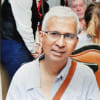
 For all latest news, follow The Daily Star's Google News channel.
For all latest news, follow The Daily Star's Google News channel. 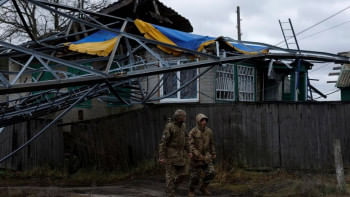

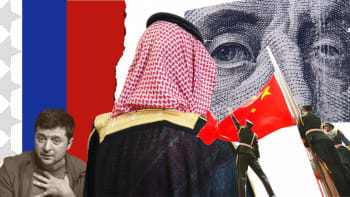
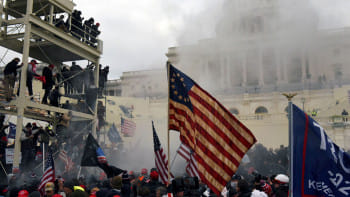



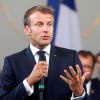





Comments